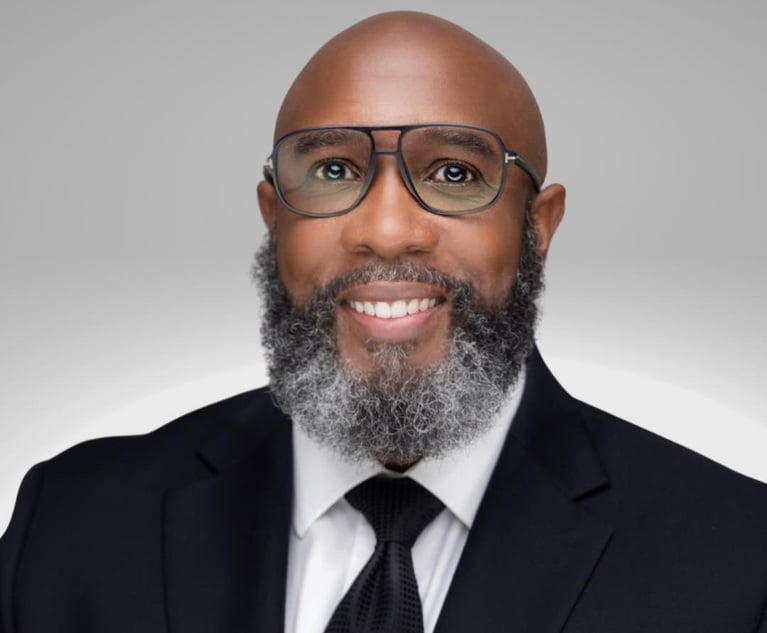South Florida Litigator Jeffrey Siskind Makes an Independent Bid for Florida Attorney General
Siskind was motivated to run for the position of the state's chief law enforcement officer following the February 2018 massacre at Marjory Stoneman Douglas High School. However, he may have to contend with several cases from his past first.
September 28, 2018 at 04:13 PM
5 minute read
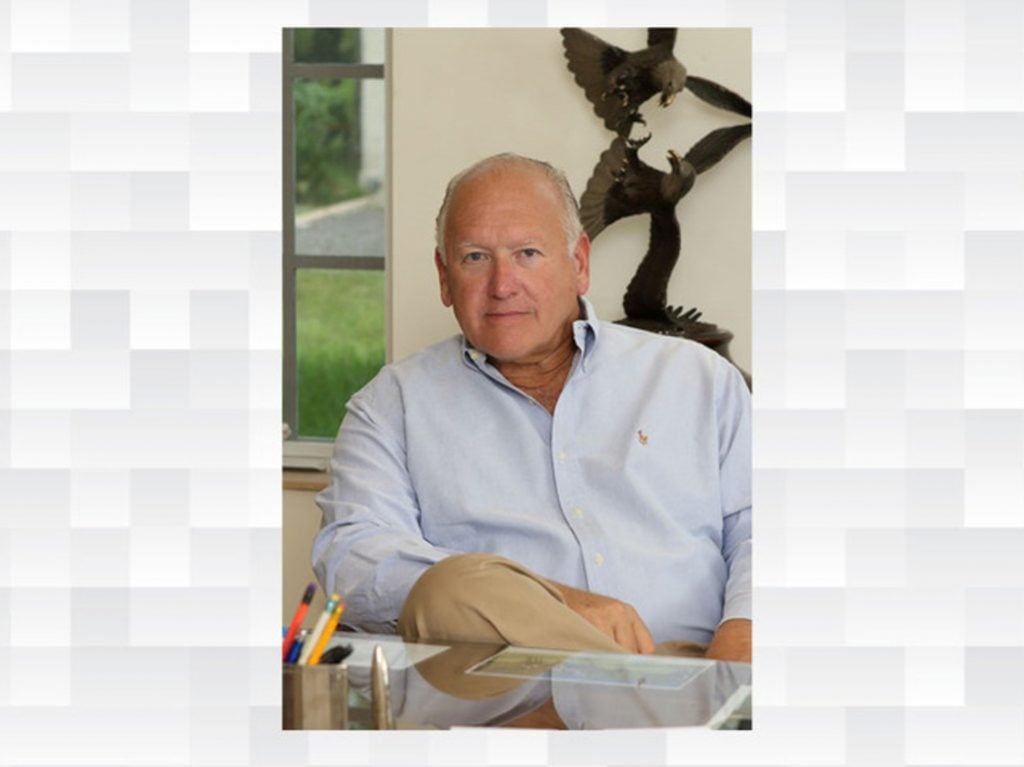 Wellington lawyer and Florida attorney general candidate Jeffrey Siskind. Courtesy photo
Wellington lawyer and Florida attorney general candidate Jeffrey Siskind. Courtesy photo
When he began his professional career, Jeffrey Marc Siskind didn't harbor ambitions of one day running for Florida attorney general.
For that matter, he didn't have his sights set on becoming a litigator at all.
“I was in the development business with my father, and then I struck out on my own and did some hospitality ventures. I then got into construction and realized after a few years that all of our projects eventually fell into the hands of attorneys who made … the majority of the lion's share of the retainage,” Siskind told the Daily Business Review. “So I thought, 'I think I'm going to go into this business!' ”
Despite his unlikely origins, Siskind is now angling to become Florida's top law enforcement official. Siskind, a Wellington-based litigator, will be one of voters' three options on the midterm election ballot this November to replace current Florida Attorney General Pam Bondi once she finishes her final term. He will be facing off against state representative and Democratic nominee for attorney general Sean Shaw as well as former circuit judge and federal prosecutor Ashley Moody, the Republican candidate for the position.
Although the Democratic and Republican slots for attorney general candidate are filled, Siskind's run as an independent is one of design, not of necessity.
“I don't believe in the parties anymore,” Siskind said, adding that he self-identified as a Democrat until his 20s when he became a Republican. He said he began calling himself an independent roughly two decades ago and points to the United States' present bout of political polarization and turmoil as an indictment of the country's two-party system.
“I'm a centrist. I don't know that people use that term very much, but I appall what's going on with the partisan fighting nationally — it has no place in state politics and local politics, and we're learning that,” Siskind said. “What we've had to watch over the last two years — and really more than that — has been … a deterioration in our national politics.”
“I hadn't really thought seriously about it until the Marjory Stoneman Douglas incident when I just said enough is enough,” Siskind said. “We're all adults in the room here, why can't we do something about firearms that makes sense?”
Siskind explained that one of his top priorities as attorney general would be the institution of what he calls a “Gun Club.” Equating the concept to leaving one's “golf clubs at the country club” or “boat at the marina,” Siskind described his proposal as a means to limit the circulation of privately owned firearms in public spaces.
“[A gun] could only be transported in certain ways between the vendor, whoever you would sell your firearm to or other gun clubs; it would never be allowed out in public except of course for law enforcement,” Siskind said. “So you'd still have your personal protection weapons, pistols and whatnot that you could keep at home, but we've got to get those off the streets. It's not a cure-all, but it's a cure-some. And if we can save some lives that way and get people thinking a little bit differently about firearms, then hopefully my gun compact will be a good start to remedy that.”
Siskind also believes that the attorney general's office is too isolated as it presently functions. He says that one of his first moves if elected would be to create two deputy AG positions — one for a “judicial liason officer,” and the other “a legislative liasion officer.” Both would be tasked with refining communications between different state government agencies and in turn reduce what he regards as “inefficiencies,” such as an underfunded and understaffed judiciary.
“We have judges who have to share resources. They have to share their law clerks for example,” Siskind said. “Money that's been allocated for the judiciary has always been taken and used for other purposes. And that is a violation of our state's responsibilities towards citizens because we all depend on the the judicial apparatus. It's essentially what gives us a peace of mind that we'll be treated with fairness.”
Besides the uphill battle faced by any independent candidate, Siskind also has to contend with bad press. A September 2018 story in the Palm Beach Post features testimony from former clients alleging that Siskind committed fraud and misappropriated funds among other charges. While the paper could only confirm one complaint for “funds/trust accounting violations,” through a Florida Bar spokesman, several of those interviewed by the Post said they had filed complaints against Siskind with the bar.
Siskind told the Daily Business Review that although many of the allegations levied against him in the story are “easily disproved,” he maintained that “the media is not the place to do it.”
“There were sufficient papers within the cases that showed that the allegations were entirely false,” he said. “I realize those allegations may make people uncomfortable, and I would hope that those people would actually take a look at the docket entries in those cases, which are public record, and satisfy themselves that the allegations really don't make sense.”
“Know this is something that is in the courts, and that's where we're going to resolve it. And I'm not going to battle it in the media because I think that's inappropriate.”
Jeffrey Marc Siskind
Born: March 1955, Baltimore, Maryland Spouse: Tanya L. Siskind Children: Samantha Leigh Siskind, Jack Thomas-Edward Siskind, Scarlett Leigh Siskind Education: Southwestern University, J.D., 1996; Harvard University, ALM 1983; Harvard University, ALB 1982 Experience: Siskind Legal, 1997 to Present
This content has been archived. It is available through our partners, LexisNexis® and Bloomberg Law.
To view this content, please continue to their sites.
Not a Lexis Subscriber?
Subscribe Now
Not a Bloomberg Law Subscriber?
Subscribe Now
NOT FOR REPRINT
© 2025 ALM Global, LLC, All Rights Reserved. Request academic re-use from www.copyright.com. All other uses, submit a request to [email protected]. For more information visit Asset & Logo Licensing.
You Might Like
View All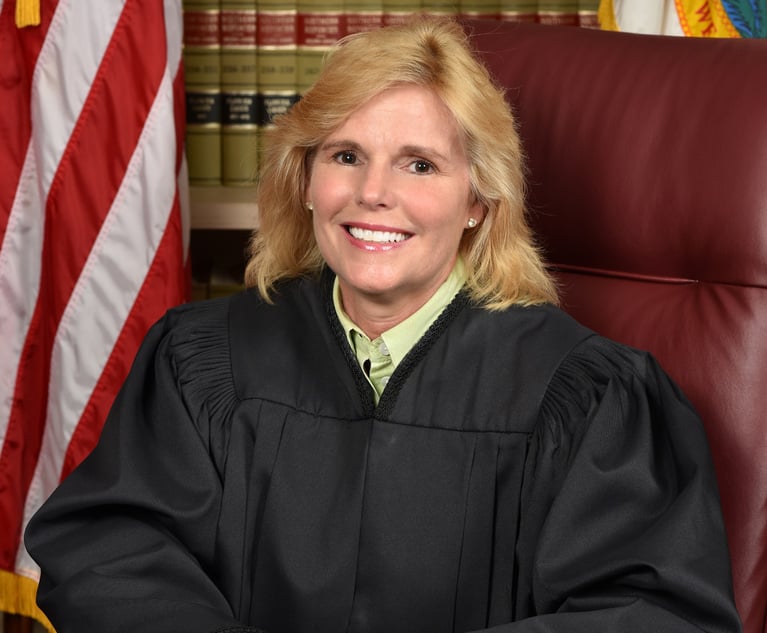
Carol-Lisa Phillips to Rise to Broward Chief Judge as Jack Tuter Weighs Next Move
4 minute read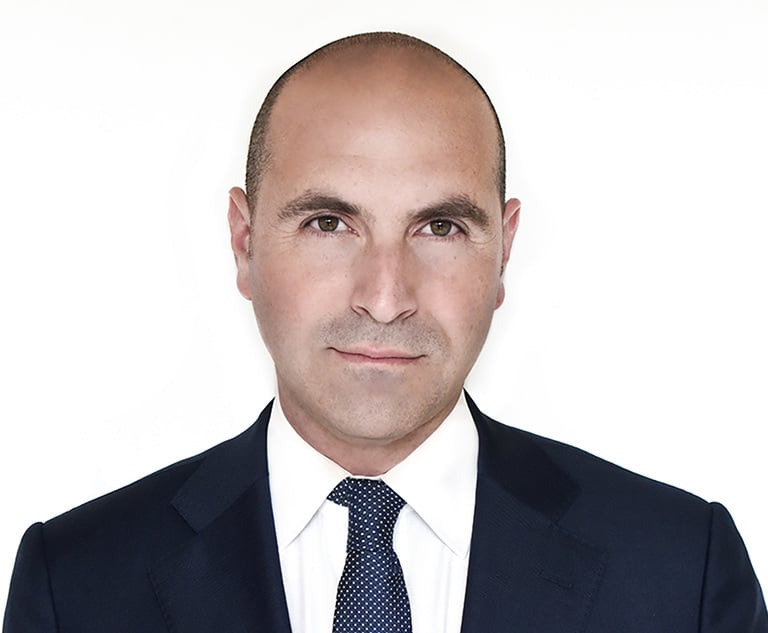
Growing Referral Network, Alternative Fees Have This Ex-Big Law’s Atty’s Bankruptcy Practice Soaring
5 minute read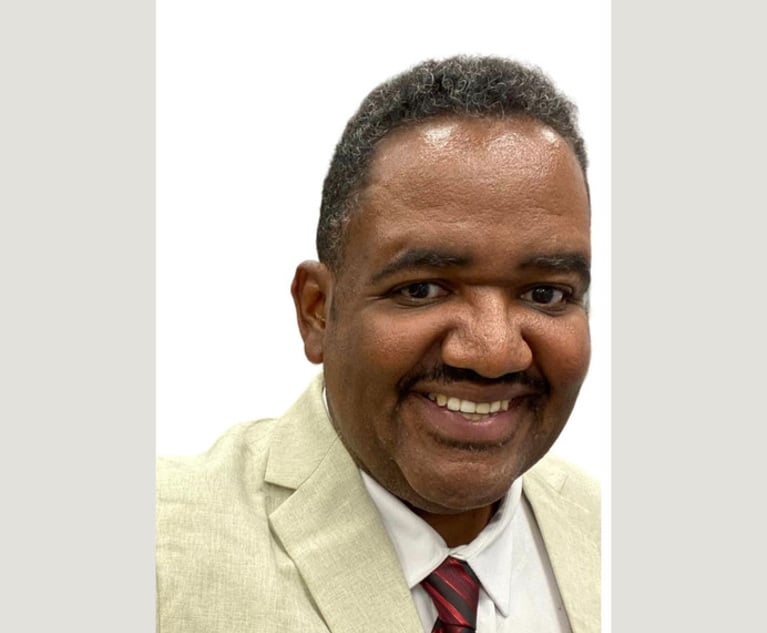
Against the Odds: Voters Elect Woody Clermont to the Broward Judicial Bench
4 minute readTrending Stories
Who Got The Work
J. Brugh Lower of Gibbons has entered an appearance for industrial equipment supplier Devco Corporation in a pending trademark infringement lawsuit. The suit, accusing the defendant of selling knock-off Graco products, was filed Dec. 18 in New Jersey District Court by Rivkin Radler on behalf of Graco Inc. and Graco Minnesota. The case, assigned to U.S. District Judge Zahid N. Quraishi, is 3:24-cv-11294, Graco Inc. et al v. Devco Corporation.
Who Got The Work
Rebecca Maller-Stein and Kent A. Yalowitz of Arnold & Porter Kaye Scholer have entered their appearances for Hanaco Venture Capital and its executives, Lior Prosor and David Frankel, in a pending securities lawsuit. The action, filed on Dec. 24 in New York Southern District Court by Zell, Aron & Co. on behalf of Goldeneye Advisors, accuses the defendants of negligently and fraudulently managing the plaintiff's $1 million investment. The case, assigned to U.S. District Judge Vernon S. Broderick, is 1:24-cv-09918, Goldeneye Advisors, LLC v. Hanaco Venture Capital, Ltd. et al.
Who Got The Work
Attorneys from A&O Shearman has stepped in as defense counsel for Toronto-Dominion Bank and other defendants in a pending securities class action. The suit, filed Dec. 11 in New York Southern District Court by Bleichmar Fonti & Auld, accuses the defendants of concealing the bank's 'pervasive' deficiencies in regards to its compliance with the Bank Secrecy Act and the quality of its anti-money laundering controls. The case, assigned to U.S. District Judge Arun Subramanian, is 1:24-cv-09445, Gonzalez v. The Toronto-Dominion Bank et al.
Who Got The Work
Crown Castle International, a Pennsylvania company providing shared communications infrastructure, has turned to Luke D. Wolf of Gordon Rees Scully Mansukhani to fend off a pending breach-of-contract lawsuit. The court action, filed Nov. 25 in Michigan Eastern District Court by Hooper Hathaway PC on behalf of The Town Residences LLC, accuses Crown Castle of failing to transfer approximately $30,000 in utility payments from T-Mobile in breach of a roof-top lease and assignment agreement. The case, assigned to U.S. District Judge Susan K. Declercq, is 2:24-cv-13131, The Town Residences LLC v. T-Mobile US, Inc. et al.
Who Got The Work
Wilfred P. Coronato and Daniel M. Schwartz of McCarter & English have stepped in as defense counsel to Electrolux Home Products Inc. in a pending product liability lawsuit. The court action, filed Nov. 26 in New York Eastern District Court by Poulos Lopiccolo PC and Nagel Rice LLP on behalf of David Stern, alleges that the defendant's refrigerators’ drawers and shelving repeatedly break and fall apart within months after purchase. The case, assigned to U.S. District Judge Joan M. Azrack, is 2:24-cv-08204, Stern v. Electrolux Home Products, Inc.
Featured Firms
Law Offices of Gary Martin Hays & Associates, P.C.
(470) 294-1674
Law Offices of Mark E. Salomone
(857) 444-6468
Smith & Hassler
(713) 739-1250





